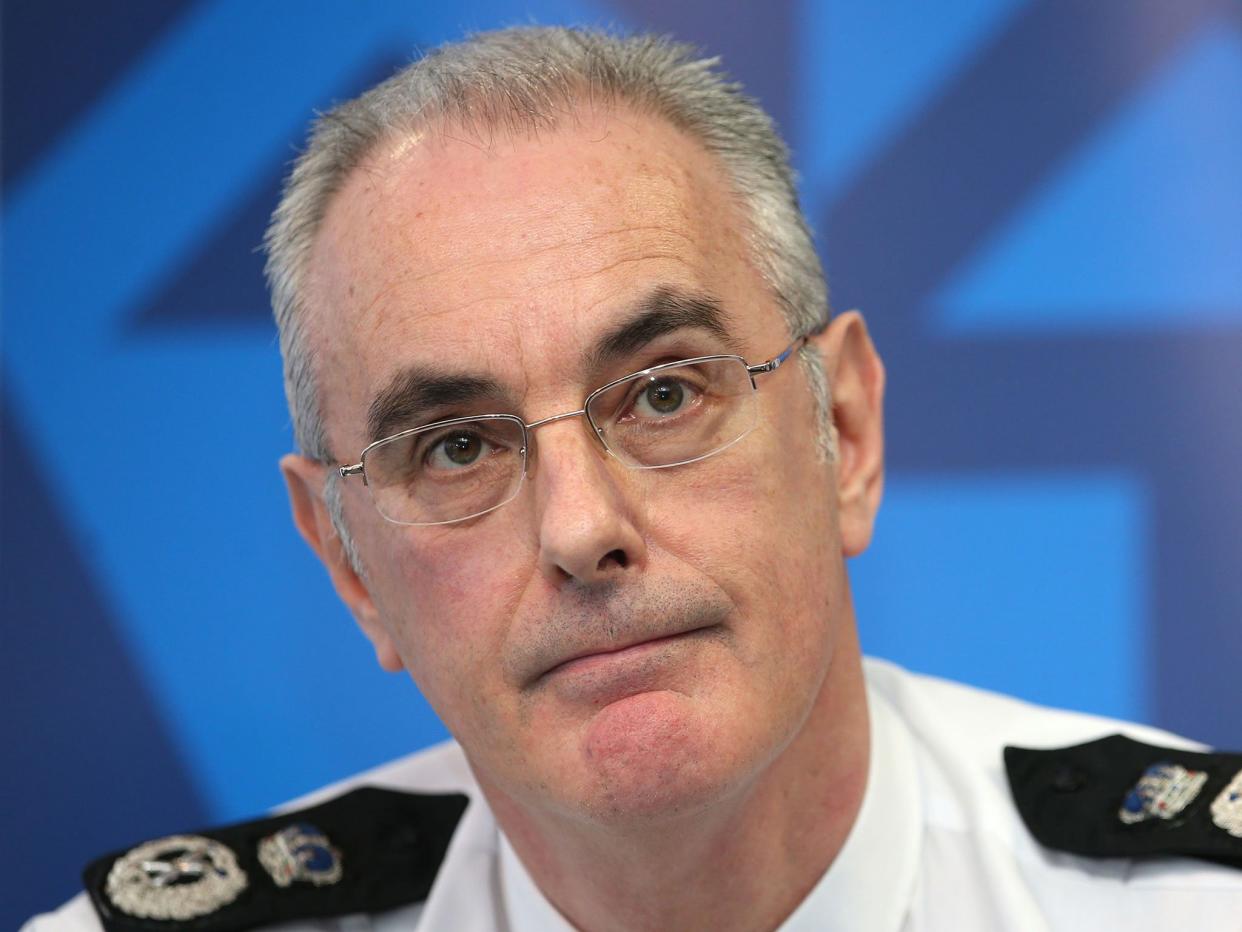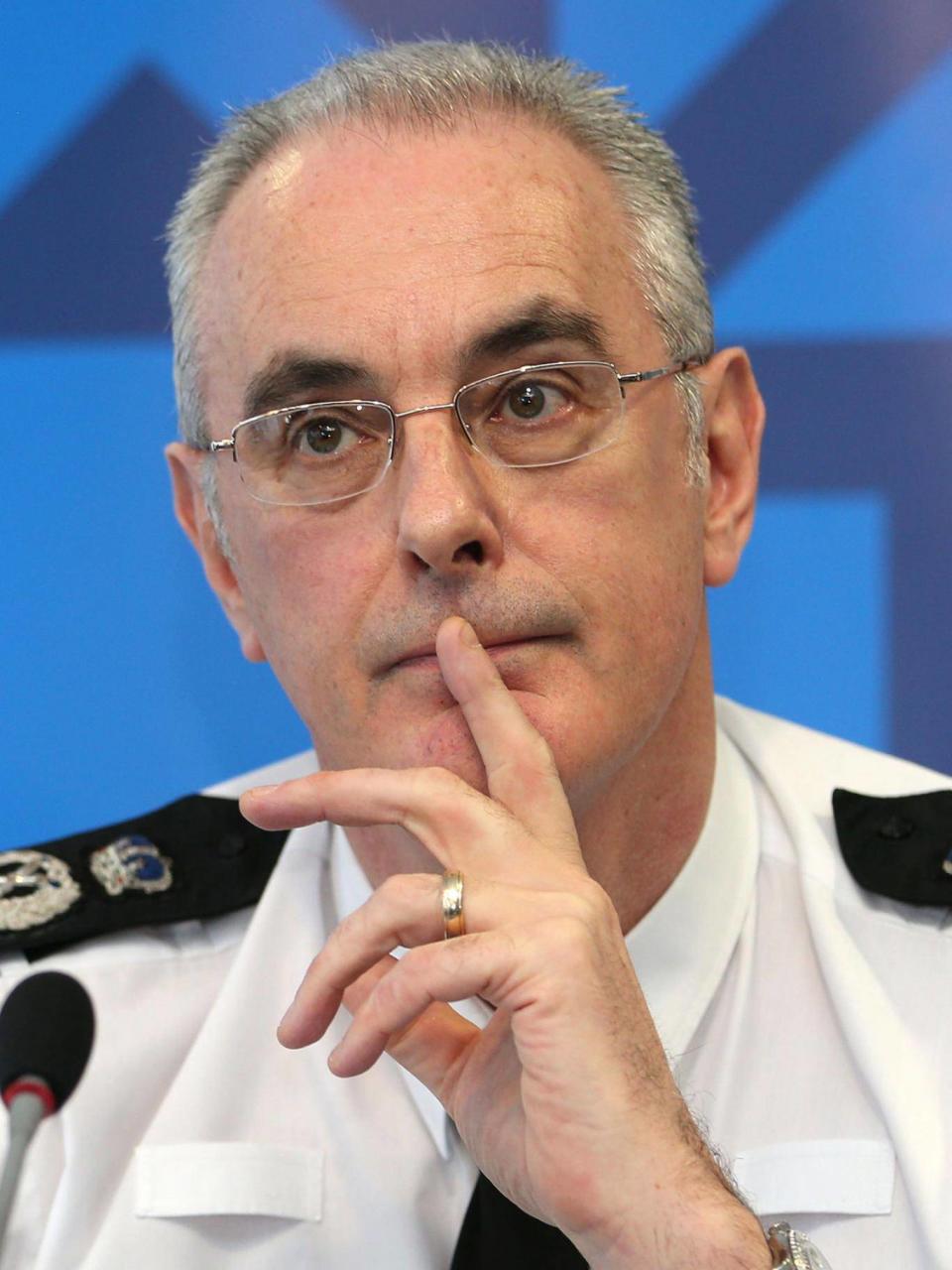Former Police Scotland chief who resigned amid bullying investigation 'set to be given watchdog role'

The former head of Police Scotland could be joining a policing watchdog, despite resigning from his post while being investigated for alleged gross misconduct.
Phil Gormley was subject to five separate probes over bullying claims when stepped down in February, 10 months before the end of his contract.
He denied the claims but said they made it “impossible to resume my duties in a meaningful way” at Police Scotland after a lengthy leave of absence.
Despite the controversy, he is reportedly to be appointed to HM Inspectorate of Constabulary, which exists to uphold standards in police forces across England and Wales.
It states its main values as "respect, honesty, independence, integrity and fairness" and works to make improvements to policing.
Mr Gormley underwent a long selection process, appeared before a panel of experts and was interviewed by Sajid Javid for the role as an inspector for the north of England, the BBC reported.
Other regional inspectors are in a pay grade with annual salaries of between £87,000 and £162,500, public documents show.

Mr Gormley was also paid for his three-month notice period and remaining annual leave when he left Police Scotland, where his salary was £212,280.
The Home Office refused to confirm the appointment before an official announcement, which will be made “in due course”.
Members of HM Inspectorate of Constabulary are crown appointments, meaning that applicants are technically chosen by the Queen on the home secretary and prime minister’s recommendation.
Days before Mr Gormley resigned as head of Police Scotland, the Police Investigations and Review Commissioner (PIRC) announced its fifth probe into allegations against him that amounted to potential gross misconduct.
The watchdog, which is Scotland’s equivalent of the Independent Office for Police Conduct, was due to make recommendations on whether he should be referred to a misconduct hearing.
But Mr Gormley’s resignation made potential disciplinary action impossible and the process was ended.
A spokesperson for the PIRC told The Independent reports on investigations that started in dating July 2017 were passed to the Scottish Police Authority (SPA) in February.
“The allegations were independently and thoroughly investigated, which involved interviewing a substantial number of witnesses to establish or refute the allegations made,” a spokesperson added.
The SPA declined to comment on whether it would make the findings public, or if the reports had been passed to the Home Office or other parties considering Mr Gormley’s potential appointment.
A spokesperson said: “The SPA does not comment on specific complaints. All complaints are handled in line with the Authority's statutory functions.”
The authority became embroiled in a political row with the Scottish justice secretary over investigations into Mr Gormley, and whether he should be allowed to work as they continued.
And in January, the senior officer’s wife wrote a letter to the Scottish Daily Mail condemning the probe as a “disproportionate fishing expedition” and accusing authorities of “half-truths and lack of transparency”.
Before starting as chief of Police Scotland in January 2016, Mr Gormley was deputy director general of the National Crime Agency.
He previously led Norfolk Constabulary and was awarded the Queen’s Police Medal for his work and also served as deputy chief constable at West Midlands Police.
From 2003 to 2007 Mr Gormley worked for the Metropolitan Police and had oversight of the Special Demonstration Squad during a period when some undercover officers entered into relationships with women in targeted protest groups.
Mr Gormley told journalists he knew “nothing at all” about the affairs, which are now subject to an inquiry, at the time.

 Yahoo News
Yahoo News 
